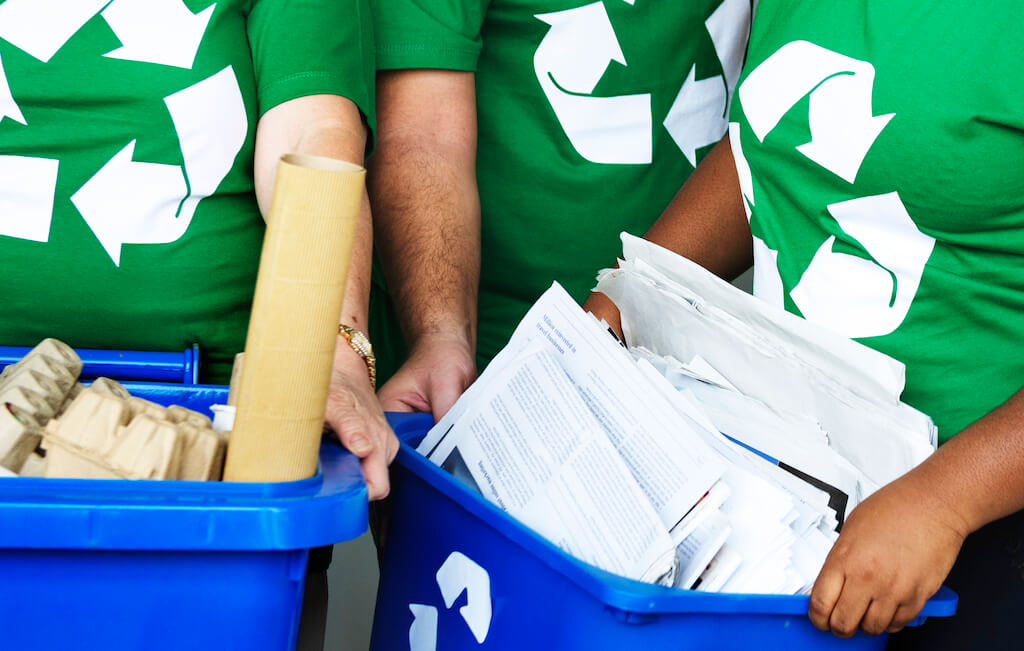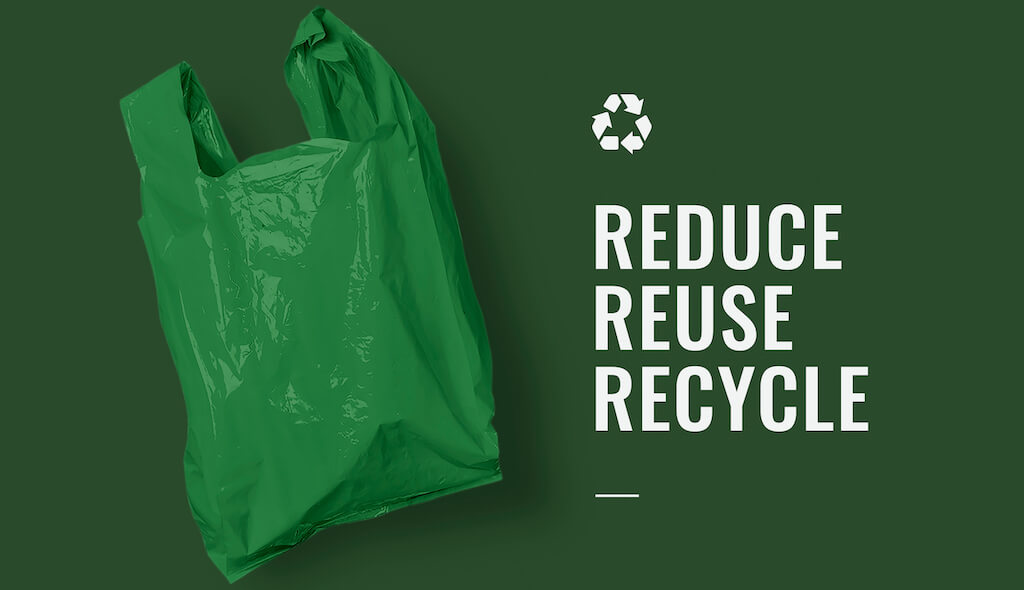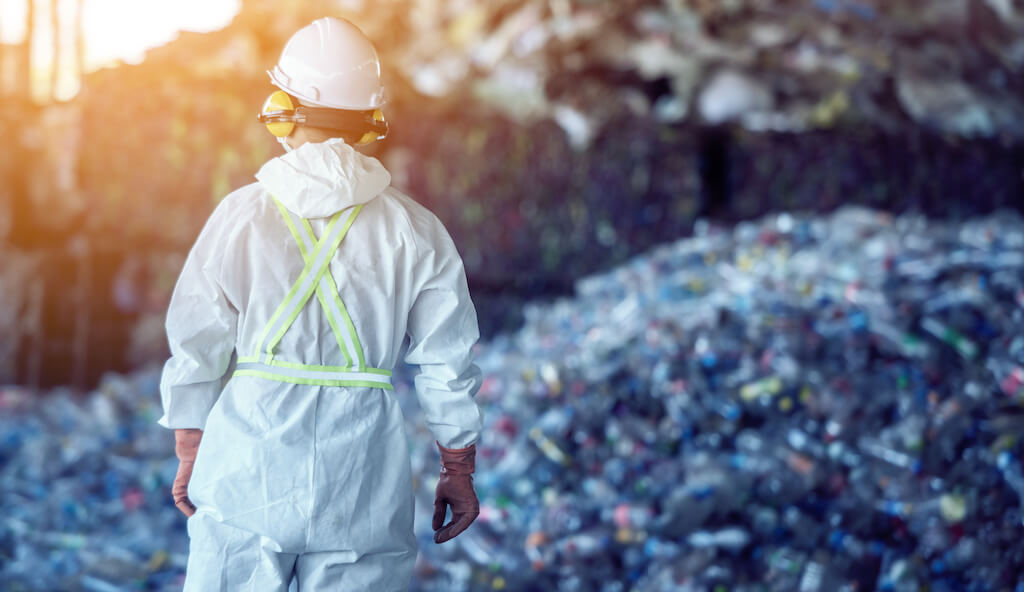How garbage from workplaces will be disposed of is a concern that people have more and more these days. Poor waste management procedures frequently have several negative consequences, such as environmental and health concerns. According to a Malaysian Government estimate, Malaysia’s commercial and industrial sectors generated 4 million tonnes of rubbish in 2019, making up a significant portion of the waste issue in the country.
Businesses must recognise and comprehend the significance of waste management. The regular collection, transportation, processing, disposal, and recycling of various waste products are the primary operations involved in waste management. Businesses must better manage the garbage they create and protect the environment from waste’s harmful consequences as waste production rises and disposal facilities fill.
At Gargeon, we collaborate with companies to manage their garbage in the most economical and ecologically responsible manner possible, intending to achieve zero waste to landfill. Continue reading this post to learn why waste management is crucial in the modern world and how to start the process.
What is Waste Management?
Waste management is the complete process of handling waste generated by people and companies, including the collection, transportation, monitoring, disposal, and recycling of waste. Garbage must be properly managed from the time it is created until it is recycled or disposed of at its final destination to guarantee no harm to the environment or humans.
Waste management for organisations can be quite frustrating and expensive if done incorrectly. To guarantee efficiency, compliance, and maximum recycling, waste management companies like Gargeon offer garbage container rental, flexible collection schedules, and waste audits.
Why is Waste Management Important for Businesses in Malaysia?

The following are some of the main justifications for why businesses must practise good waste management:
Reduces Waste to Landfill
Landfills are detrimental to the economy, local ecology, and human health. In landfill sites, a variety of garbage kinds decompose, polluting the air and water, harming the local biodiversity and having several negative consequences on people. The release of methane from decomposing garbage has the most significant environmental impact since it is one of the most potent greenhouse gas contributors to global warming.
Businesses that correctly manage their garbage can lessen the overall quantity of waste transported to landfills, which will benefit the environment. With the help of waste alternatives like recycling, there has been a significant drive in recent years to divert as much garbage as possible from landfills (zero waste to landfill).
Saves Money for Businesses
A substantial percentage of companies buy supplies, and goods are wasted or even left unused! Businesses will become more aware of the trash they produce, how much is made, and why when a waste audit is conducted at the beginning of the waste management process. Therefore, waste management aids firms in improving ordering, lowering waste, reducing waste materials, and saving money.
Businesses should not just seek out better waste management options but also work to minimise the quantity of garbage they produce in the first place, as landfill charges are increasing. This is particularly common in the building and demolition industries.
Adds Value to Waste
Not all garbage should be considered “wasted.” When used correctly, garbage may be pretty valuable. By enlisting a waste management service that can help and advise, businesses may offer their garbage value rather than just throwing it away. Waste is a valuable resource, whether recycled, burned for energy recovery, or repurposed. The value may vary based on the type of garbage. For instance, scrap metal is precious and sold at favourable prices.
Preserves Natural Resources
Proper waste management can help protect natural resources. To power operations, materials are produced using various natural resources, including limited mineral deposits or fossil fuels. Businesses contribute to preserving precious, finite natural resources by boosting recycling and decreasing the dependency on processing virgin materials to produce goods.
Even if it is debatable, the energy required to transform recycled garbage into new materials is far lower than that for raw resources.
Streamlines Business Processes
Every business produces garbage in some form, and this debris may soon become dangerous or repulsive to workers. Unpleasant odours, danger to people, and expensive remedial actions can result from improper storage, infrequent collections, unsuitable containers, hazardous waste kinds, and more. Waste management is not a bother for businesses and may even help with cost-cutting when done right the first time.
Complies with the law
The Malaysian government has required legislation and regulations to ensure businesses comply with their duty of care to handle the garbage they create responsibly. The government has outlined several requirements, such as sorting and storing garbage properly, utilising licenced waste management companies, and ensuring waste disposal is ethical and legal. Read the government regulations here for further details.
Aligns with Customer Values
Customers will be drawn to companies exhibiting strong environmental commitment through efficient waste management. In the present day, buyers actively seek out “green” businesses to buy goods and services, making environmental health a crucial problem. Effective waste management with high recycling rates or zero waste to landfill outputs benefits a company’s ecological strategy and ability to attract customers.
How to Reduce the Amount of Waste Your Business Produces

Does your company generate a lot of waste—or maybe more—than it did years ago? By decreasing greenhouse gas emissions and the worldwide health risks brought on by our waste streams, reducing waste saves money on expensive garbage hauling, showcases industry leadership, and supports corporate social responsibility.
Take into account the following tactics for your company:
Compost and Recycle
The garbage you couldn’t remove should be recycled once you’ve reduced the quantity of rubbish you create in your office. You may improve your recycling and composting programme with Gargeon’s assistance.
Using our service, you may sustainably minimise your trash by up to 40% or more.
Conduct a recycling Audit of the Office
Conducting a recycling audit is one of the most excellent methods to determine where there is potential for supply chain improvements in your company. You can keep track of the consumables you keep on hand and the recyclable materials your company uses. There are nearly always ways to transition from things that must be thrown away to ones that can be recycled, even though it may not be practical to make the changeover 100% recyclable materials.
Your company’s trash impact will be reduced the more products you recycle annually. To ensure that individuals are disposing of these goods properly, you can also position recycling containers strategically throughout the office. If you don’t additionally supply the required containers for convenient access, simply asking people to recycle is insufficient.
To guarantee that you can recycle the most items, it’s also critical to strengthen recycling processes. Find our Gargeon team that can handle a variety of garbage types. After that, prominently display information informing your staff precisely what kinds of materials may be placed in the recycling can.
Change Your Packaging
The majority of garbage produced annually is connected to packing. You will be able to save a tonne of money and the environment simultaneously if you can decrease the packaging waste in your company. An excellent illustration is CirclePac Malaysia, which has modified its packaging to be more ecologically friendly. They probably also saved a lot of money as a result each year.
If feasible, think about eliminating single-use packaging from your company’s products and switching from plastic to cardboard or paper wherever possible. These adjustments can significantly reduce the amount of trash your company produces each year while also improving your bottom line.
Avoid Bottled Water to Cut Waste at Your Company
Plastic bottles contribute significantly to the garbage that ends up in the ocean and places a significant load on the recycling system. By removing all the bottled water from your facility, you may significantly minimise the trash generated by your company. The tap water in your building should be filtered and completely safe to consume to replace bottled water.
You won’t be providing exceptional water to your employees just because it is in a plastic bottle —making this step will significantly reduce the garbage your company produces annually and potentially save thousands of water bottles from going to the landfill.
Go Paperless
Even if recycling paper is now simpler than ever, processing huge volumes of recyclable paper each year still uses a lot of energy and harms the environment. Going completely paperless is more feasible than ever because of advancements in computers and technology over the past 10 years. If you do an audit of the procedures that your company still uses paper for, you’ll probably discover that the majority of them are simple to convert to digital.
There is enough paper wasted each year to build a 12-foot wall stretching from New York to California. Consider what would happen if your company ceased adding to this statistic. Consider the impact on the environment that even a small number of organisations going paperless may have!
Every year, enough paper is thrown away to fill landfills in Malaysia with approximately 57,000 tonnes of paper, which is the equivalent of cutting down 680,000 trees that are large enough to be sold. Consider what would happen if your company ceased adding to this statistic. Consider the impact on the environment that even a small number of organisations going paperless may have!
How Can a Business Go About Implementing a Waste Management Plan

Set a Collaborative Approach to Waste Management Goals
By adopting a collaborative mindset, you may encourage strong, self-sustaining partnerships with waste disposal companies and municipalities to help with the cooperation of recycling systems and solid waste management. This also enables you to promote collaboration between public and private players, which enhances recycling and waste management while minimising its environmental impact.
However, your waste management strategy should include two different objectives representing the overall waste management aims of your business. The second objective should be the actions necessary to accomplish those goals. The more immediate purpose is to assist your company in concentrating on attaining them.
Know the Type and Volume of Waste Generated and Segregate It
Find out what type of garbage your organisation produces and how much of it is produced daily. Afterwards, you may sort the various waste products your business produces into recyclable or reusable materials and place them in designated containers. The waste can also be divided further into categories based on its chemical makeup, physical characteristics, and possible hazards.
Monitor the Waste and Implement a Waste Reduction Program
By actively tracking the garbage, you may find recycling options, seek strategies to decrease waste output, and determine the waste management needs that apply to your business. You may also implement a waste reduction programme to encourage better teamwork and communication among your employees and decrease waste. A waste management coordinator who is in charge of developing a programme that reflects the requirements of your business can help you implement this more effectively.
Set Up a Reliable Waste Collection Process
To collect waste, the company that picks up the trash must ensure that they are not overfilled and are not left sitting about for an extended period. To prevent foul odours and garbage overflow, the bin containers must also be appropriately sized and serviced regularly. The waste should be properly labelled for identification to avoid placing the incorrect garbage in the incorrect containers.
There should be adequate communication and cooperation between you and your garbage disposal company, which should have access to your workplace when you have agreed.
Use Professional Waste Transport Services
Using garbage transport vehicles that have been trained and given permission to move the waste from your business’s address to the processing plant is recommended. This is far more effective since the drivers are also prepared for any emergencies that can happen.
The garbage should be further divided into recyclable and non-recyclable waste so the recyclable elements may be processed. These processed resources are later purchased by businesses that support sustainable production and growth.
Plan your Waste Management with Gargeon
Gargeon offers a knowledgeable network of waste collection providers and consultants to assess and simplify your waste management processes and services. Gargeon becomes your reliable industry partner by lowering overage or contamination costs from garbage carriers, negotiating the best local rates, and offering smarter waste management tools to manage your waste and recycling. With more data insight, better on making decision to optimise service, save cost and reduce waste.
Hotels, restaurants, shopping centres, and property developers trust Gargeon to provide the most affordable and ethical waste management options. With the help of our services, your business may save costs, lessen its impact on the environment, and even draw in new clients. Together, let’s revolutionise the way your company manages waste. Call our team right now to find out how you can contribute to maintaining the cleanliness and wellness of our neighbourhoods while saving money on waste garbage disposal.

